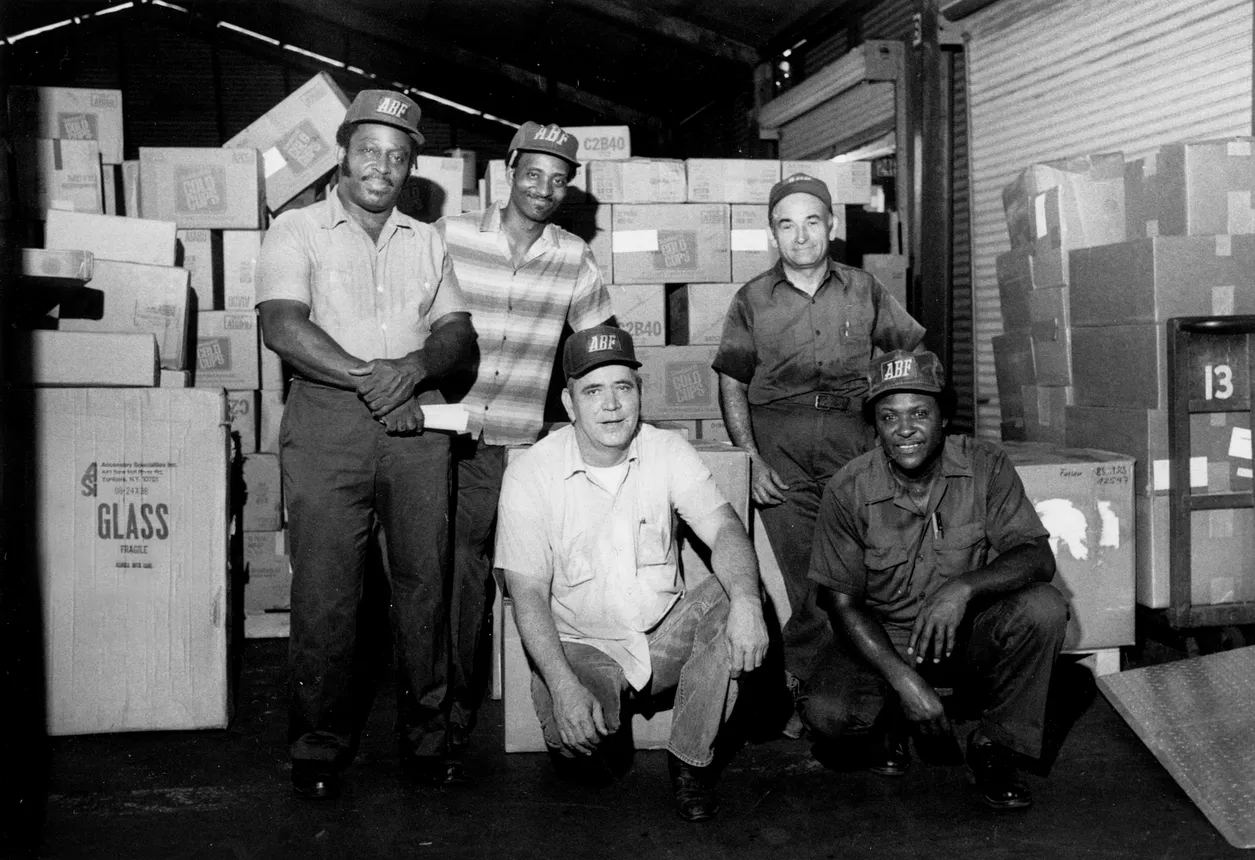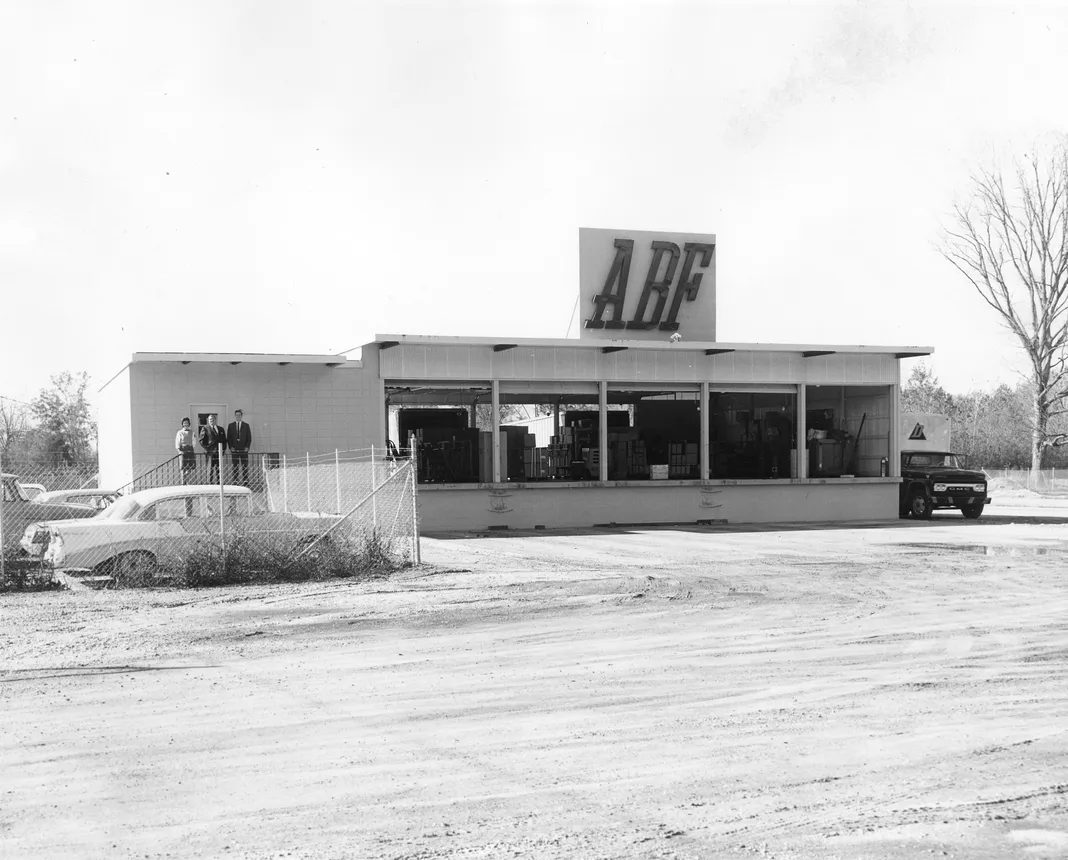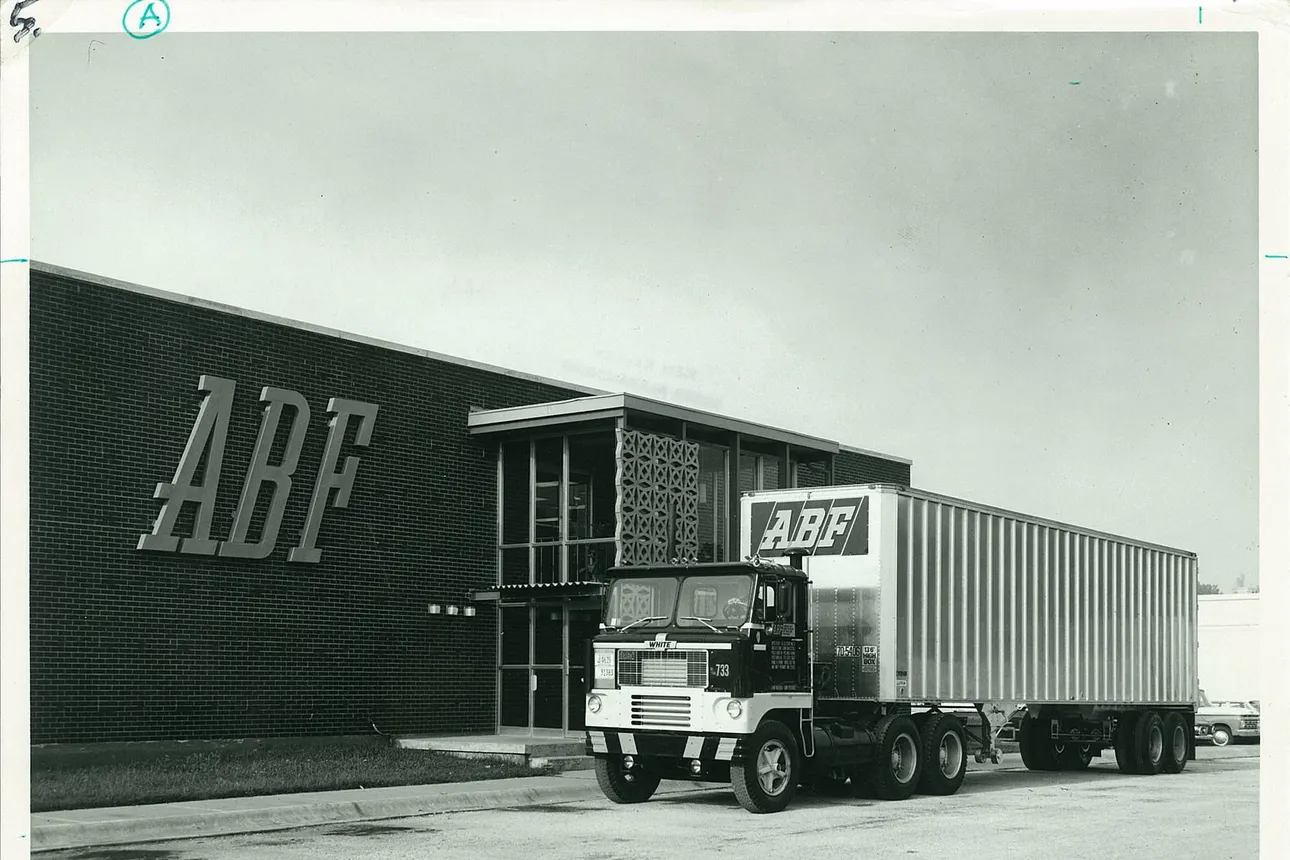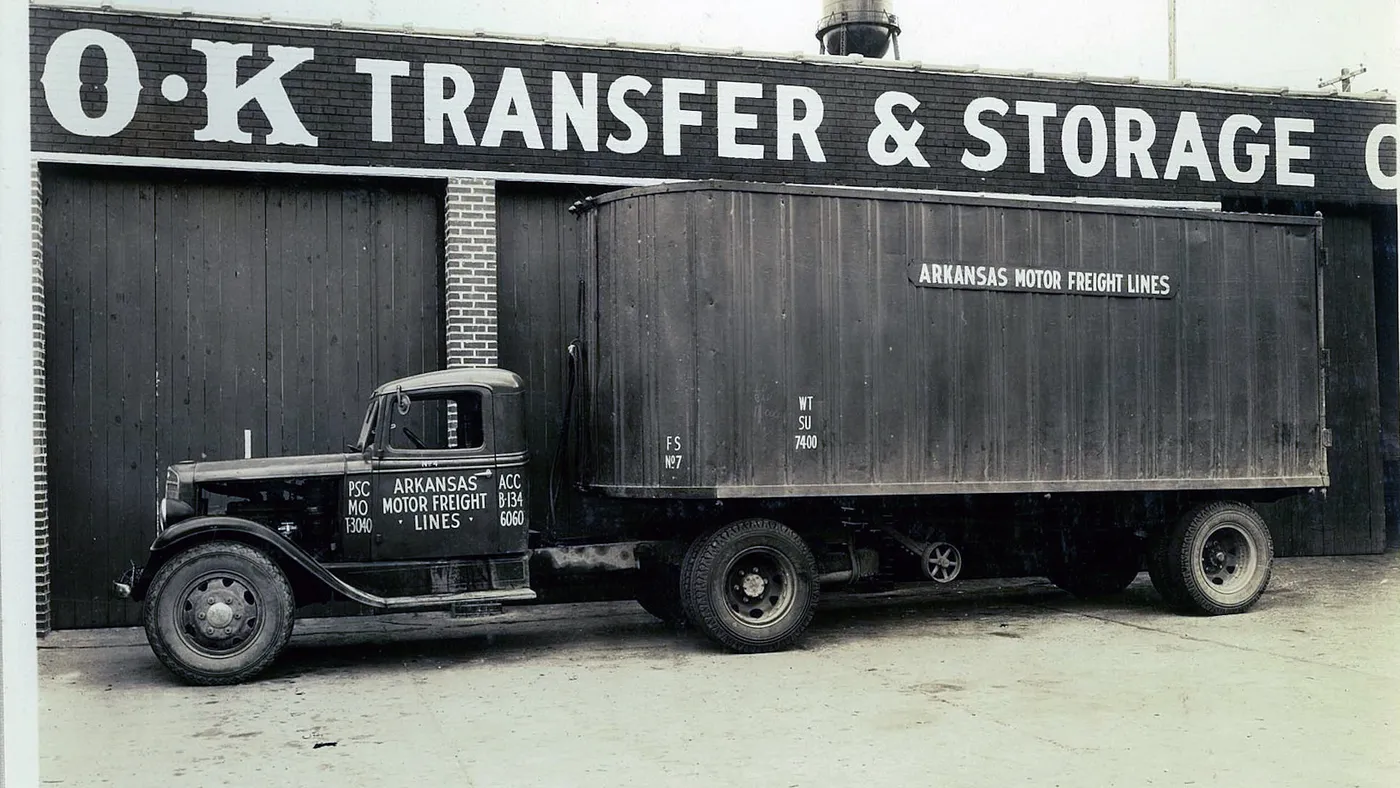Editor’s note: This article is the third in a series of stories based on an exclusive Trucking Dive interview with ABF Freight President Seth Runser. Read the first installments here and here. Want these types of stories in your inbox? Sign up for the Daily Dive — it’s free!
If Seth Runser hoped for a relaxing 2023 that might allow ABF Freight to reflect on the company’s centennial, he had another thing coming.

The ratification of a new labor deal was a highlight in the ArcBest-owned carrier’s 100th year, which otherwise has been overshadowed by Yellow Corp.’s bankruptcy sending shipments its way in a prolonged freight recession. A cyberattack on Estes Express Lines last month also temporarily added to the downpour in a drought.
“We've had a lot going on this summer, obviously,” Runser said. “Along with all the macroeconomic conditions ... it’s been a pretty busy summer to say the least.”
The carrier prides itself on its company culture, which its president describes as “industry-leading.” It includes ensuring workers receive training and support, as well as regular management visits and operational updates.
That culture, and key M&A along the way, allowed a local hauler launched in Fort Smith, Arkansas, in 1923, to survive a century's worth of challenges and blossom into the nation’s largest unionized LTL carrier.
“We really try to partner with our customers, and that all starts with our people at the end of the day,” Runser said.

An Arkansas carrier sprouts through M&A
As with Old Dominion Freight Line, ABF Freight’s name reflects its roots, despite its trucks now crossing the country.
Founded as OK Transfer, it acquired Arkansas Motor Freight and assumed the company’s name in 1935, according to a company history. Its trucks first drove outside the state with its acquisition of Motor Express the same year.
The company was a regional carrier in Arkansas, Missouri and Louisiana in the 1940s before its acquisition by Robert A. Young Jr. in 1951. It received the first iteration of its modern-day acronym after a 1956 deal for Best Motor Freight created Arkansas Best Freight System, or ABF.

A 1978 deal for Navajo Freight Lines and a score of other acquisitions over the years paved the way for ArcBest, the carrier’s parent company, to become a trucking and logistics behemoth.
In the 1980s, it successfully fought off a hostile takeover with a leveraged buyout that took the company private for four years. The ensuing years saw ArcBest acquire Worldway, Albert Moving and Panther Expedited, and expand into logistics services.
The August 1988 takeover attempt wouldn’t be the last time others would eye ArcBest: Rumors swirled this year that TFI International might acquire the company after the Canada-based freight giant bought shares of the company’s stock.
The longest active member of the Arkansas Trucking Association, ABF Freight has evolved and thrived in the face of deregulation, economic recessions, a pandemic and other disruptions, according to Shannon Newton, the association’s president.
“Its legacy is preserving what is proven and good and changing with the times to make the supply chain better, safer, more efficient and finely tuned to deliver for communities all over the state and nation,” Newton said in an email.

Leading by hitting the road
Maintaining a strong culture across any national company, much less one founded a century ago, takes work.
Runser hits the road about every other week, visiting ABF Freight’s employees at hundreds of terminals across the country. He said he’s met with thousands of employees over the past few years.
“I really believe in being a leader of presence,” the company president said. “There’s so much change that you’ve got to be in front of your people.”
The carrier sends quarterly internal video updates to ensure drivers, dockworkers, maintenance and other workers receive regular communication about the operation. Beyond competitive wages and benefits, communicating with drivers and acting on their concerns are major keys to retaining them, according to experts.
“We really have a good relationship with our employees,” Runser said. “We provide industry-leading benefits. That's really an advantage for us because we have an experienced workforce who knows how to take care of our customers, which ultimately leads to growth.”
‘They’re going to be around for another 100 years’
When Tony Spero was hired at ABF Freight in the spring of 1989, he and his wife didn’t have any children.
But he knew he wanted a stable job, somwhere he could work long-term. He asked the hiring manager: “Am I going to be able to retire from this company?”
“He said, ‘I guarantee it,’” Spero recalled in an interview with Trucking Dive. “He was 100% right.”
The 58-year-old America’s Road Team Captain, a group of senior drivers with stellar safety records, will retire at the end of the year after nearly 35 years with the carrier. Driving a truck for ABF, Spero has provided for his family in Stratford, Connecticut, which now includes two children, a 4-year-old grandson, a 2-year-old granddaughter and a 1.5-year-old granddaughter.
ABF Freight wages are competitive and health benefits are phenomenal, particularly for unionized workers, Spero said. The labor deal for ABF’s 8,600 Teamsters includes improved wages and benefits, and prohibitions against the use of inward-facing cameras, audio recorders, body and biometric sensors or driverless autonomous vehicles.
The upper management exemplifies the company’s values by keeping their promises — and being forthright when they have to decline driver requests, Spero said.
“It's been good to me since day one: May 1, 1989,” he said. “I believe they're going to be around for another 100 years.”
Greg Linch, data and visuals director, contributed to this story.






